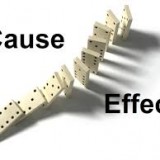A court won’t force a plaintiff to give “consent”.
On June 27, 2016, a master of the BC Supreme Court found that it is not appropriate for a Court to order a plaintiff to sign a consent form when attending a court ordered independent medical exam. In Gill v. Wal-Mart Canada Corporation, 2016 BCSC 1176, the plaintiff sued the defendant for personal injuries after a slip and fall incident. In the course of the lawsuit the plaintiff agreed to be examined by a physician of the defendant’s choosing but refused to sign a consent form the physician required. The defendant asked the Court to order the plaintiff to sign the form; the application...
read moreUse social media at your peril.
On June 7, 2016, a judge of the BC Supreme Court rejected claimed damages in a personal injury lawsuit due, in part, to concerns about the plaintiff’s credibility arising out of Facebook photos entered as evidence at trial. In Brennan v. Colinders, 2016 BCSC 1026, the plaintiff was involved in a 2012 motor vehicle accident for which the defendants admitted fault. The plaintiff claimed that the accident caused chronic problems which continued up to the time of trial. The judge rejected this claim, finding that the collision-related injuries had resolved. In awarding $20,000 in non-pecuniary...
read moreCourt punishes defendants for not making admissions.
On May 25, 2016, the BC Supreme Court found the defendants at fault for a motor vehicle accident, and ordered that the defendants pay double costs for an “unreasonable” refusal to make admissions of facts sought in a notice to admit. In Ceperkovic v. MacDonald, 2016 BCSC 939, the defendants were sued for damages arising out of an accident involving three motor vehicles. Prior to trial the defendants were served with a Notice to Admit seeking admission of various facts. The defendants did not admit all of these facts requiring ultimate proof at trial. In finding the refusal to...
read morePlagiarism renders expert report inadmissible.
On May 19, 2016, a judge of the BC Supreme Court, Mr. Justice Saunders, ruled that an expert report was inadmissible into evidence for numerous reasons, particularly plagiarism. In Anderson v. Pieters, 2016 BCSC 889, the defence objected to the admissibility of a report produced by the plaintiff’s physician on numerous grounds. The judge excluded the report stating that he “would not qualify Dr. Sank as an expert capable of offering the opinion evidence tendered in the April Report.” Saunders J. then identified a far more serious concern, namely that the physician...
read moreIf causes of depression are not “divisible”, defendants are liable for all symptoms.
Ms. K. suffered whiplash type injuries in a 2007 car accident. Her pain became chronic and she became depressed. The consensus of the medical experts at her trial was that “her chronic pain is unlikely to resolve and the focus of her treatment should be on pain management, not cure.” Ms. K. admitted that she had a troubled childhood. also, a few years after her accident she experienced a torn rotator cuff, then shoulder surgery and then a frozen shoulder which were all unrelated to her accident. In K. v. Galasinao, 2015 BSSC 1532, Mr. Justice Blok concluded that “there is a...
read moreSupreme Court Judge: ICBC doctor a “very unhelpful medical witness”.
On December 23, 2015, the BC Supreme Court criticized a defence expert witness for crossing the line into advocacy. In Ferguson v. McLaughlin the plaintiff was injured in a 2009 collision caused by the defendant. The defendant’s insurer hired a physician who presented evidence largely discounting the connection of the plaintiff’s complaints to the collision. In rejecting this evidence Madam Justice Griffin made the following pointed comments: [63] The defendant called the evidence of Dr. Duncan McPherson, an orthopaedic...
read more









